Some termed it passionate hockey at it's best. Anyone watching the Habs and Pittsburgh over the last two meetings would be hard pressed to disagree. The atmosphere was pure playoff hockey in Febuary.
These games had it all. Comebacks, controversy, great plays, great goaltending, and Sidney Crosby at his best and worst.
Add in that the duo of former Habs GM and coach, Andre Savard and Michel Therrien man the Pens bench, and it doesn't take a crystal ball to see where all this steam could erupt if a playoff matchup were in the cards.
In just the space of a little more than 120 minutes of hockey, there have been enough highlights of the controversial variety to fill several separate columns and stand alone pieces.
From the drop of the puck Thursday night, there was the Crosby - Maxim Lapierre "Was it is really a butt end?" incident. Lapierre, it has been noted, has long been a thorn in Crosby's side. Two seasons back, in the QMJHL, Lapierre was employed to shadow and irritate Sid the Kid, and came out on the good end of a hat trick. There's a history between the two that appears far from over.
Off the faceoff, Lapierre shoved Crosby to ice after losing the draw. Crosby's much talked about "excellent, low center of gravity" didn't help much as Lapierre caught him off balance. Crosby attempted to make it look as though he'd been butted, but a second camera angle defied his claim. A player spiked in such a manner would bend forward initially and not fall backwards. Hockey's new Lawrence Olivier, was not born yesterday when it comes to drawing penalties.
The act is beginning to wear thin. In an incident from Saturday's game, Crosby was accidently high sticked by the shaft of Francis Bouillon's graphite forward hacker, and he dropped like Wyle E. Coyote's anvil. While a call would have been totally legitimate here, Crosby's antics are fostering doubt among the black and white stripe set. It seems that when Sid adds the ketchup and mustard to the hotdog, the refs are less and less inclined to point skyward.
Crosby nets many comparisons to Lemieux for his on ice skill and ability, but this is more in the vein of Claude Lemieux, the former Hab and Devil most often associated with faking injuries. Lemieux, Claude, employed this schtick beyond exhaustion and effectiveness, leading to Pat Burns, his former coach, pre-empting the teams very trainers from participating in the folly.
Crosby actually got trash talked down on the subject by one-goal man, Aaron Downey. Yapping from the benches ends, the two exchanged grocery shopping secrets, according to Downey, who admitted that his rant pointed to Crosby's premier player status, and how such behavior chipped away at such esteem. I'll never likely get to suggest this ever again, but may Sidney learn this lesson from the mouth of a one goal man, for the best interests of hockey fans everywhere.
According to Downey, the conversation went like this:
"We were having a few words - (Recchi) was telling me his philosophy on life, and I was telling him mine," Downey said, setting off in his unique orbit.
"It seemed to work. I think I had a better world view than he did. He was more materialistic and I had a deeper sense of what was happening. He didn't like that, with his comeback, so I gave it to him a little more and Sidney tried to defend him.
"A lot of words were used, like nullified and patriotism. I ain't gonna lie to you, I had a lot of fun out there. I haven't played in a month, and for the first couple shifts, it was like: 'Holy smoke, this is fast hockey.' "
Sidney, we all want to keep on loving you, so ditch the act. It's unbecoming of you.
Colby Armstrong on the other hand, developed the first case of Habsfearflu. He simply did not show up due to some mysterious injury. How convenient!
As soon as coach Guy Carbonneau suggested that Armstrong would surely be playing with his head up on Sunday, the Penguins forward did what he did in his fight with Souray - he wimped out.
It's likely that coach Therrien smartly removed the element of retribution from the game. He is guiding a young team in full dynasty metamorphosis, and surely doesn't relish the distraction. He's also wise enough to understand about playing into the whole mess in the magnified hockey microscope that is the city of Montreal. Having coached in Montreal, and being the first QMJHL bench boss to take his team to a Memorial Cup in twenty-five years, Therrien is nobody's fool. In his junior apprenticeship, he was in fact viewed as the gooniest of hard-ass coaches, hell bent on winning in the allies as much as on the ice. His silence and "no comment" spoke volumes on the lessons learned.
Crosby, in a sideline story, did leave behind one very classy gesture in Montreal. After having been interviewed between periods on RDS, he realized that there was something important that he wanted to say. He asked team mate Mark Recchi to relay a message on air for him before changing his mind and doing it himself during the second period intermission. Appearing right after the Recchi interview, Crosby popped in to say hello to friends and fans from the Rimouski area. A nice touch.
Much has been written on the Jekyl and Hydeness of the Canadiens of late. Which team shows up is too often being determined by the percieved calibre of the opponants. It has been discussed that lack of emotion has been at the rotting core of some very dismal showings. The heart of the team is questioned at times, leadership as well. The term "stupid penalties" enters the argument at every turn.
All are valid points, but I must open the wound that is penalty calls.
You can term it "taking stupid penalties" in one regard, but too often it is a case dumb calls being made. The Canadiens in this view are absolutely the most fouled against team when it gets down how officials have been calling their games. Look no further than last Thursday's call against Ryder and the Souray fiasco that followed. There is an obvious bias playing out in some games, with certain officials. In Saturday's game, the calls tilted in favor of the Penguins by a huge margin.
I often find that when the Habs are off their mark, these officiating inconsistancies are at the heart of it. They are duped by it into to playing a timid brand of hockey that is not theirs. They look off balance and out of sync, they stop hitting and pursuing the puck with the same grit, and the lines are all skewred for timing and become incompatible.
But lo and behold, the Canadiens are the best third period team in the league. They have registered 18 points ( 7 wins and 4 SO/OT losses ) when trailing after two periods, almost a third of their seasons total so far. What accounts for this abnormality?
Simply, it is the long standing but unwritten league policy of putting the whistles away in the third period.
If I were an NHL GM, I'd hire a full time scout or two, just to get a handle on the calling tendencies of certain officials games. A few days before the team has to deal with the evolving hybrid of make-it-up-as-they-go-alongness, a team meeting could be held to say that so and so has a habit of extremely chintzy calls in the hooking department. Such informational strategies might actually become the norm should officiating continue to be so atroscious.




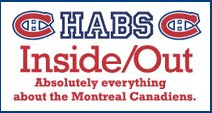





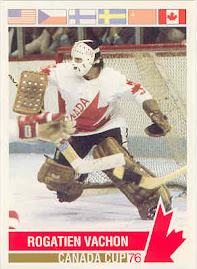
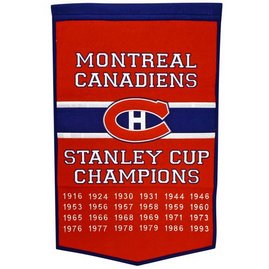







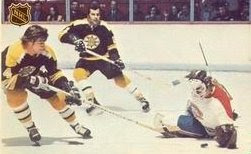



















































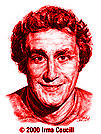



































































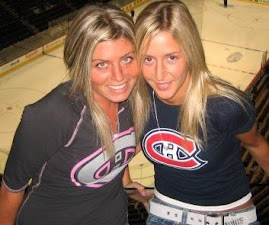
















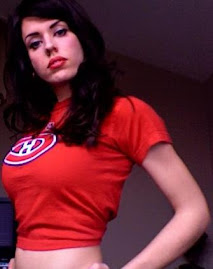

2 comments:
Calling it the Souray Fiasco implies that the penalties were out of line.
Souray absolutely deserved what he got in terms of penalties. The only mystery is why Armstron didn't get a fighting major.
If the NHL truly believes the instigator penalty isn't obsolete, then they have to start coming down a little harder on the actions that begin incidents like this.
Five seconds before he hit Koivu, Armstrong knew exactly what he was going to do - the 6 or 7 strides taken are proof enough of a charge. The fact that the hit was supposedly clean at the contact point is an irrelevant argument. 5 for charging, which is in books, and possibly a game misc. for attempt to injure should have been Armstrong's.
If you see the replay, Armstrong's gloves are off first, so Souray's instigator is doubtful by actions, but obviously not by intent. Armstrong also threw punches.
The fiasco I am implying is that one team gains a 7 minute PP. I have watched hockey since 1968. I don't recal an incident of the sort being called quite like this.
The Canadiens games have been called this way all year.
Also, if I were Bob Gainey, I'd have called Ryder and Higgins into the office and ask why they simply skated away after Koivu's hit. Funny they were not on the top line on Sunday?
Post a Comment